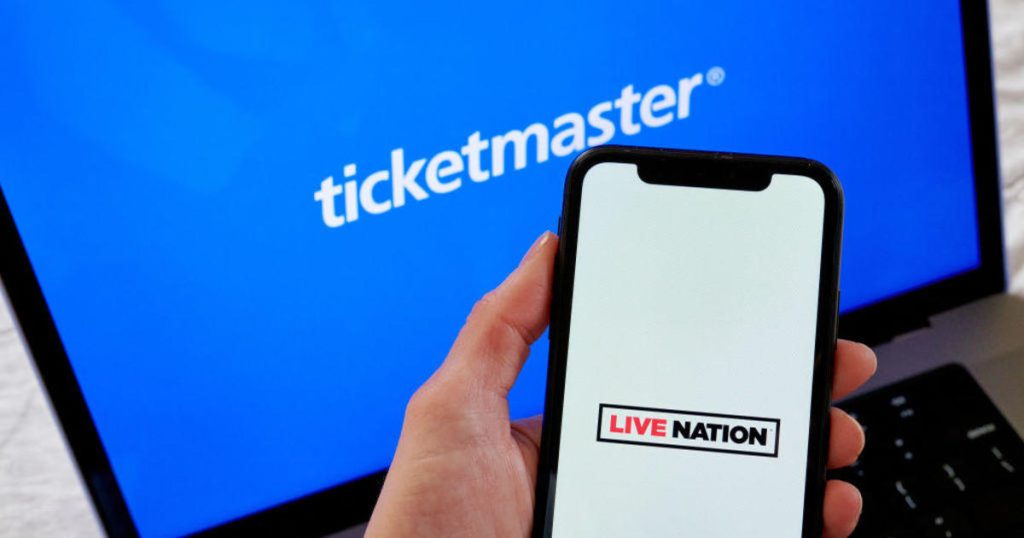The Justice Department is preparing to file an antitrust lawsuit against Live Nation, an entertainment conglomerate that owns Ticketmaster, with several state attorneys general joining in the legal challenge. The lawsuit is expected to challenge Live Nation’s business practices and could potentially result in the company being forced to make changes to how it operates. This action follows a years-long investigation by the Justice Department’s antitrust division, which intensified after Ticketmaster’s website crashed during a pre-sale for Taylor Swift’s Eras Tour in 2022, leading to public outrage and complaints from fans.
The investigation focused on whether Live Nation was using its dominant position in the ticket industry to engage in anticompetitive behavior. The Justice Department reached out to music venues and industry participants to gather information about Live Nation’s practices, particularly examining whether the company held a monopoly over the industry. At a Senate hearing in 2023, artists testified about the challenges they face due to Live Nation’s control, with one musician citing examples of how the company’s ownership of venues, funding of shows, and ticket selling power give it undue influence over negotiations with artists. This results in higher ticket prices for fans and lower earnings for performers.
The lawsuit against Live Nation is expected to seek changes in the company’s operations or potentially divestments to address antitrust concerns. When the Justice Department takes legal action over antitrust issues, it aims to bring about modifications within the targeted company to foster a more competitive marketplace. Live Nation has yet to respond to requests for comment on the impending lawsuit. The move by the government and state attorneys general to challenge Live Nation’s practices underscores a broader effort to address concerns about market dominance and unfair competition in the entertainment and ticketing industries.
The forthcoming antitrust lawsuit against Live Nation marks a significant development in the ongoing scrutiny of the company’s operations and its impact on the ticketing and music industries. The Justice Department’s investigation, which began prior to the ticket sales mishap for Taylor Swift’s tour, has culminated in efforts to hold Live Nation accountable for potential anticompetitive conduct. Artists and industry participants have raised concerns about the company’s monopolistic control and its detrimental effects on ticket prices and artist earnings. The legal action seeks to address these issues and promote a fairer and more competitive environment in the entertainment sector.
As the Justice Department moves forward with its antitrust lawsuit against Live Nation, the case is likely to attract significant attention from industry stakeholders, legal experts, and policymakers. The outcome of the legal challenge could have far-reaching consequences for Live Nation’s business practices and the overall functioning of the ticketing and music industries. By taking a stand against anticompetitive behavior and market dominance, the government seeks to safeguard consumer interests and promote economic fairness in the entertainment sector. The lawsuit represents a crucial step in addressing concerns about the concentration of power in the hands of a few dominant players and ensuring a level playing field for artists, fans, and industry participants.


